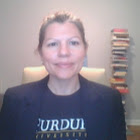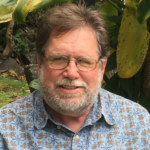Session Description
The Center for Teaching and Learning (CTL) at Purdue University Global provides opportunities for development, collaboration, networking, and community building online. The CTL hosts an annual professional development conference, provides synchronous and asynchronous development opportunities, and supports several online events for the university. As a result of the pandemic, our expertise was put into action to assist the university system in moving a face-to-face forum completely online. The challenge of engaging discussion sessions in the online environment was met with the use of interactive web-based tools and thoughtful facilitation.
This interactive presentation will provide attendees the opportunity to experience these tools first hand while engaging with the group to discuss the challenges of collaborating online. The process and tools in this session are a great fit for team-based projects, expanding online event opportunities, community engagement, and more.
Presenter(s)
 Liz Fitzgerald
Liz Fitzgerald
Purdue University Global
Liz Fitzgerald has worked in the Center for Teaching and Learning since 2015. She joined Purdue Global (formerly Kaplan University) in 2005, working in academic operations. She subsequently led the campus Academic Support Center, taught business and accounting courses, and served as campus Department Chair for Business and IT programs. Liz then took on the role of Manager of Campus Curriculum Operations in support of fifteen ground locations. Before joining Purdue Global, Liz worked in accounting and management for a non-profit organization responsible for multi-million dollar construction and renovation projects.
 Joni Boone
Joni Boone
Purdue University Global
Joni Boone has an MA in English from Appalachian State University. As a faculty developer at the Purdue Global Center for Teaching and Learning, she trains new faculty and supports professional development efforts. Prior to her position as a faculty developer, she taught and tutored writing.
 Laurie Hansen
Laurie Hansen
Purdue University Global
Laurie Hansen has an MA in TESOL and Applied Linguistics from Columbia University and in the early days of her career served as an ESOL teacher at Columbia University, in the public school system as well as Florida Atlantic University. Ms. Hansen began teaching online at Purdue Global, formally Kaplan University, in 2006 in the Educational Studies Department as an adjunct faculty member and currently serves as a full-time Faculty Developer in the Center for Teaching and Learning. Ms. Hansen was recognized in 2019 as one of the first recipients of the Purdue G.L.O.B.A.L. Distinction Awards. She serves on the Purdue Global Diversity, Equity, and Inclusion Committee; leads the Conference Crew, and has recently taken the role of Chief Purdue Global Ambassador and leading the Purdue Global Ambassadors engagement committee in that role. Ms. Hansen enjoys opportunities that develop creative expression including amateur photography and writing and has had her work published in Purdue Global Literary Journal The Gauge.

 Bethany Yoshimura
Bethany Yoshimura Maeva Anderson
Maeva Anderson Kathleen Cashman
Kathleen Cashman Mike Gonsalves
Mike Gonsalves Bryan Pope
Bryan Pope Christian Dela Cruz
Christian Dela Cruz